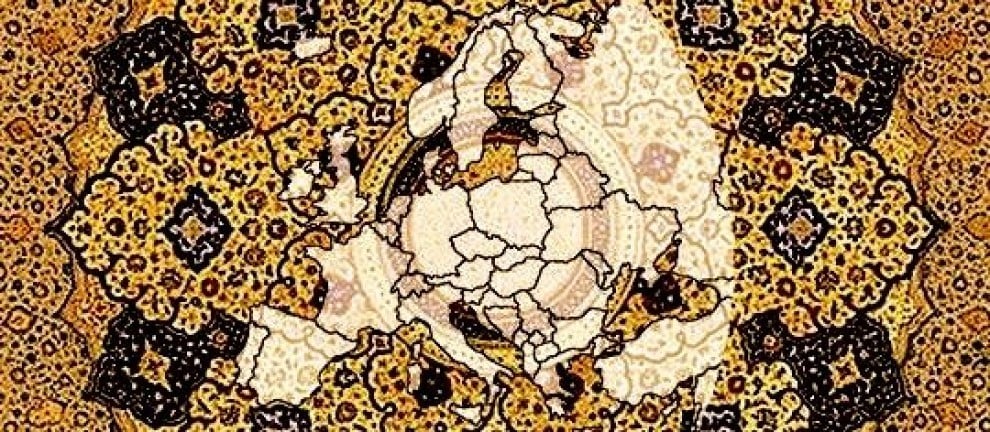
A look at Europe and European Muslims in a ‘Journey into Europe’

They say "the Arab world remembers too much history and the Europeans remember too little". As a student of history, I have felt increasingly uncomfortable with discussions in some of the groups or with discussions about the past and present.
Opening this to debate is difficult though, as history is discussed in the mainstream with emotion, resentment and bitterness about "what was lost". From a Pakistani perspective, it is about partition and 1971, with new right wing European nationalism, it is the Ummayad defeat at Tours in France, the Ottoman defeat in Vienna or the Serbian defeat in 1389 Kosovo.
With all that in mind, I approached this documentary screening at the Bradford Literature Festival with some caution.
Journey into Europe is the latest documentary by the academic and film maker Professor Akbar Ahmed. His previous tv and movie works have ranged from the movie Jinnah and the famous documentary Living Islam. Seen as a culmination of his quartet of work on the relationship between Islam and the west, this is one documentary of three parts focusing on Islam in Europe.
The first part is one that has been visited by other documentary makers in the past -- a look back at the golden age era of European Muslim civilisation. It looks at Spanish Andalusia and the beauty of the Alhambra and the era of ‘La Convivencia’ (The Coexistence) -- the time of tolerance of Islam, Christianity and Judaism in Andalusia. This was the time of the great libraries of Spain, of great scholars like Maimonides. It looks at Sicily under the Muslims and Normans, a time of a fusion of the west and the east. It also looks at their legacy, best exemplified by the mayor of Palermo Leoluca Orlando describing his city as "Middle Eastern town in Europe".
Then there is the ‘noisy’ era with the second generation of immigrants actively asserting their Islamic identity -- the turning point being the Satanic Verses and how it became a litmus test for a European Muslim’s ‘Muslimness’, while being seen as an attack on free speech by European society.
The second part is about Muslim communities in Europe and the sense of ‘otherisation’ that started after 9/11. Professor Ahmed described this in the sense of stages or eras. There was the 1960s ‘invisible’ era for both the new immigrants or converts or pre-existing communities.
The final stage is the present era of post-9/11, Iraq war, attacks in Paris, Brussels and elsewhere. European Muslims are now seen and watched in ways never seen before. Whether it is what food is eaten or how they are dressed and how they are asked endlessly to prove they are not terrorists. This part also asserts that religious violence is not the exclusive preserve of Muslims reminded by the visit to the site of the Srebrenica massacre. Watching the lone woman who had lost all male members of her family only because of being Muslim is truly one of the most heartbreaking scenes.
The final part brings us closer to the modern day as with the immigrant crisis and the rise of right wing groups from Britain to Germany. It reminds us that Europe is not homogenous and that for integration or assimilation to work, it requires both host communities and new immigrants to meet half-way.
The documentary in itself is, by the numbers, following the standard format of ‘talking heads’, interspersed with personal interactions and some beautiful imagery. What makes it stand out is the nuances and variety of people it interacts with and that it uses its long running time to merge historical documentary with current debates about immigration and what it means to be European and Muslim.
In his final analysis, Professor Ahmed sees some hope amidst all the doom and gloom. He envisions a Europe where the spirit of the convivencia is revived, and poses a challenge for European Muslims for them to rediscover their history and become a beacon for the rest of the Muslim world experiencing its own dark ages.
The Bradford literature festival run by Syima Aslam and Irna Qureshi is now in its 3rd year.